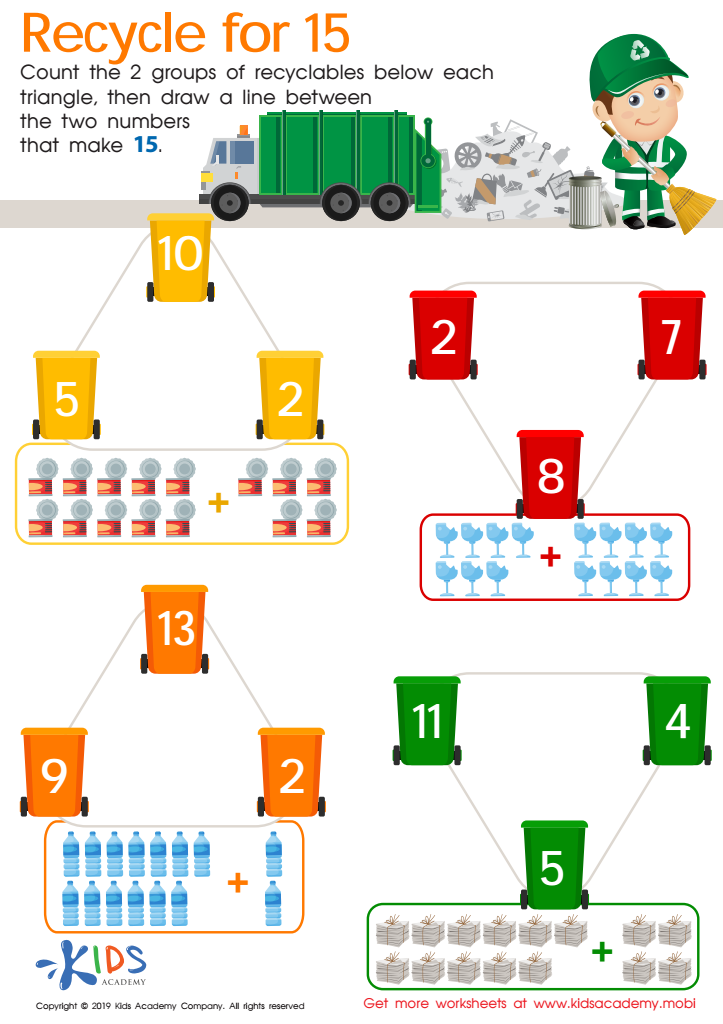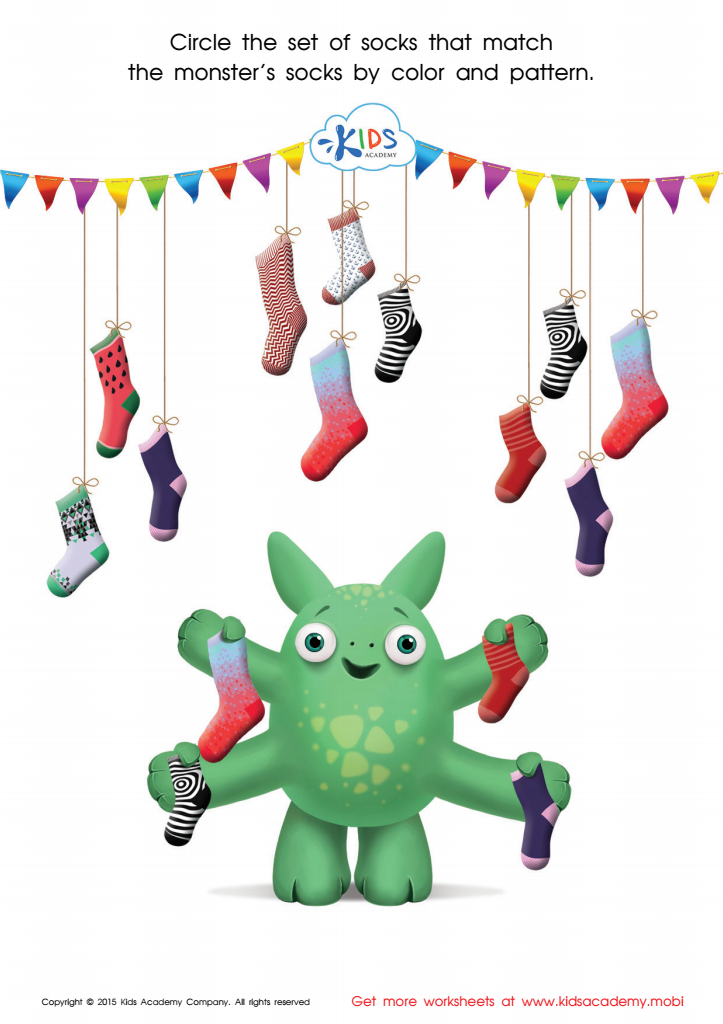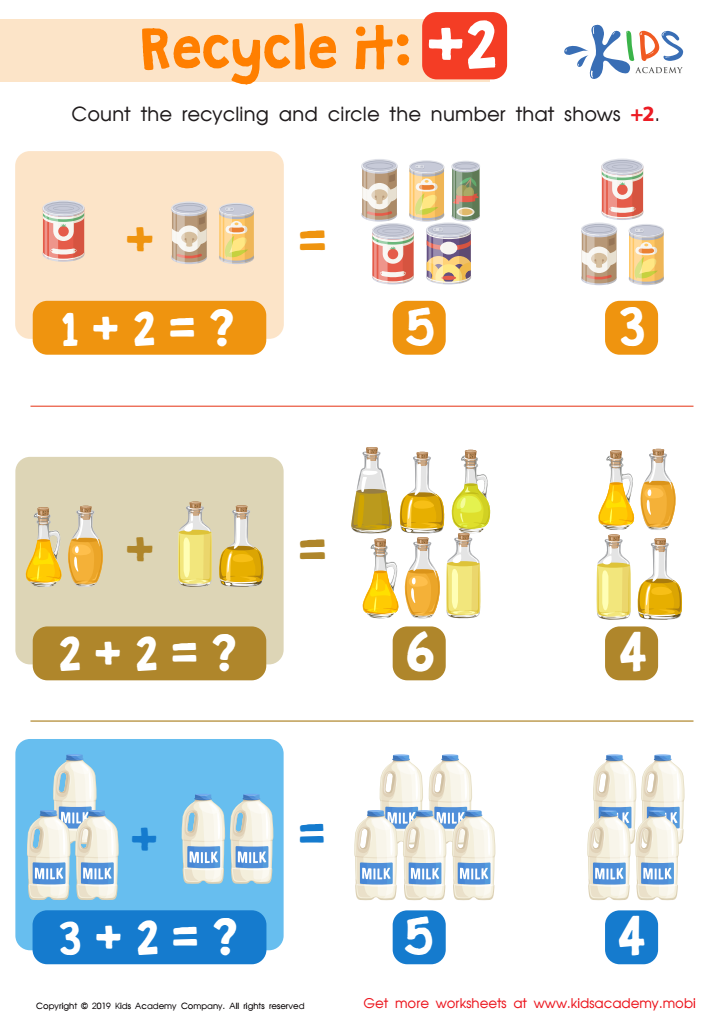Sorting skills Addition & Subtraction Worksheets for Ages 3-4
3 filtered results
-
From - To
Sorting skills are fundamental for young learners to develop an understanding of patterns and organization. Our Sorting Skills Addition & Subtraction Worksheets for children aged 3-4 provide engaging, age-appropriate activities designed to build essential math foundations. Through colorful and interactive exercises, kids practice sorting objects by different attributes while simultaneously enhancing their addition and subtraction skills. These worksheets foster critical thinking and problem-solving abilities, making learning both effective and enjoyable. Perfect for home or classroom use, our expertly crafted resources support early math development, ensuring a strong educational start for your child. Visit Kids Academy for premium sorting skill worksheets today!


Recycle for 15 Worksheet


Sort the Monster's Socks Worksheet


Recycle It: +2 Worksheet
Parents and teachers should care deeply about developing sorting skills, addition, and subtraction for children aged 3-4 because these foundational skills lay the groundwork for future academic success and everyday problem-solving. At this early age, young brains are exceptionally receptive and form important neural connections that will support more complex learning later on.
Sorting helps children categorize objects based on attributes like color, shape, and size, which enhances their cognitive development and organizational skills. This ability to sort and classify objects is crucial not just in math, but in everyday decision-making and pattern recognition.
Similarly, early exposure to addition and subtraction builds a strong numerical foundation. Engaging in simple counting games and activities helps children understand basic concepts of math, such as quantity comparison and numerical relationships. These early skills foster mathematical thinking and set the stage for more advanced arithmetic learning.
Incorporating these learning activities in a playful and engaging manner also helps children develop a positive attitude towards learning. By turning learning into an enjoyable experience, parents and teachers can inspire a lifelong curiosity and love for knowledge. Overall, these skills promote cognitive development, critical thinking, and help children achieve academic success from an early age.
 Assign to My Students
Assign to My Students
















